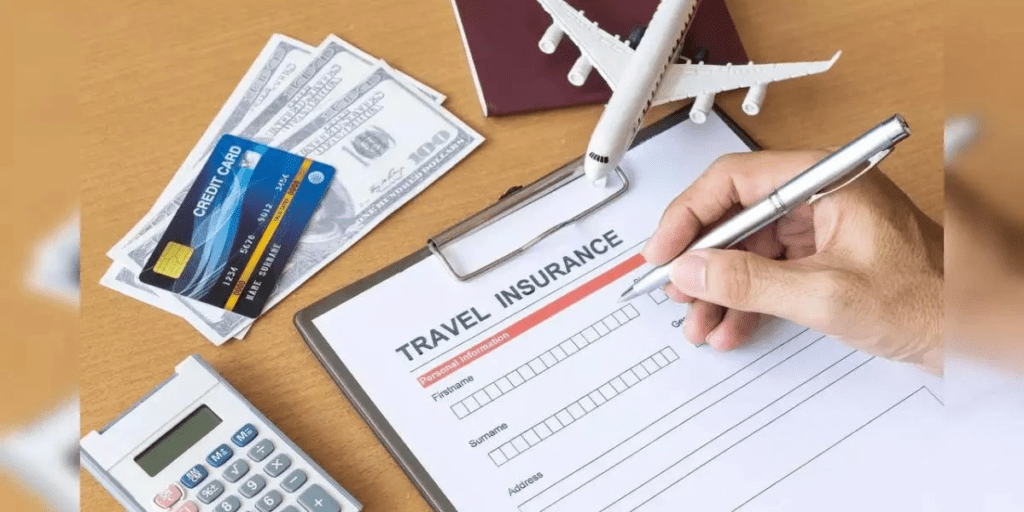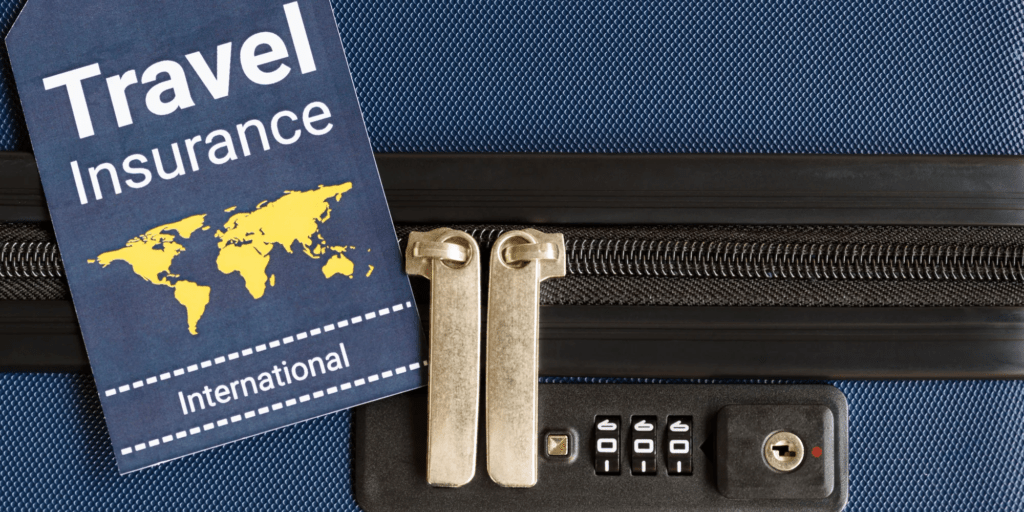How Does Travel Insurance Work? 7 Shocking Facts Every Traveler Needs to Know!
Travel insurance might seem like one of those “extra” things you can skip when booking your trip, but in reality, it could be a lifesaver. Whether you’re planning a family vacation, a solo adventure, or a business trip, understanding how travel insurance works can help you protect your investment and avoid costly surprises. In this post, we’ll break down the essentials and highlight 7 shocking facts about travel insurance that every traveler needs to know.

1. What Is Travel Insurance and How Does It Work?
Travel insurance is designed to protect you financially from a variety of unexpected issues that can arise before or during your trip. The coverage typically falls into these categories:
- Trip cancellations or interruptions.
- Medical emergencies while abroad.
- Lost or delayed baggage.
- Flight delays or cancellations.
Here’s how it works: you buy a policy before your trip that covers potential risks, paying a small premium upfront (usually 4% to 10% of the total trip cost). If something goes wrong, you file a claim with your insurance provider, and they reimburse you for eligible expenses.
For example, if your flight is canceled due to bad weather, your travel insurance could cover rebooking costs, hotel stays, and even meals while you’re stuck. It’s essentially a financial safety net that gives you peace of mind while traveling.
2. Not All Travel Insurance Policies Are the Same
One of the biggest misconceptions about travel insurance is that all policies are created equal. The truth is, travel insurance varies greatly depending on the provider, the plan, and your specific needs.
Some policies might focus more on medical coverage, while others prioritize trip cancellation protection. Always read the fine print. You need to know exactly what your policy covers—and what it doesn’t—before you hit the road.
A few key differences in policies include:
- Medical evacuation coverage (some don’t include it).
- Pre-existing conditions (may or may not be covered).
- Adventure sports (like skiing or scuba diving).
Pro Tip: If you’re engaging in risky activities like extreme sports, look for a policy that specifically covers those adventures. Otherwise, you could be out of luck if you get injured.
3. Travel Insurance Covers Medical Emergencies Abroad (But There’s a Catch!)
Did you know your regular health insurance might not cover you when you’re outside your home country? Many people are shocked to find that they’re not insured for medical emergencies abroad. That’s where travel insurance steps in.
Most comprehensive travel insurance plans will cover medical expenses if you get sick or injured while traveling. This can include doctor visits, hospital stays, and even medical evacuation back home if necessary. However, not all medical issues are covered. Pre-existing conditions may not be included unless you buy a special waiver, and some policies don’t cover routine care.
Shocking Fact: Medical evacuations can cost upwards of $100,000, so having this coverage could save you from financial disaster!

4. Trip Cancellation Protection Can Save Your Investment
Have you ever had to cancel a trip at the last minute? Whether it’s due to illness, an emergency, or simply changing plans, losing your non-refundable deposits can be painful. That’s where trip cancellation coverage comes into play.
Most travel insurance policies will reimburse you for non-refundable trip costs if you have to cancel for a covered reason. These reasons might include:
- Illness (yours or a family member’s).
- Severe weather disrupting travel.
- Unexpected work obligations.
However, be aware that not all reasons for cancellation are covered. If you simply change your mind or find a cheaper flight, you won’t get reimbursed unless you have “cancel for any reason” (CFAR) coverage. This is an optional add-on that costs more but gives you greater flexibility.
5. Your Baggage Is Covered Too!
Ever had your luggage lost or delayed? It’s one of the most frustrating things that can happen when you travel. Luckily, many travel insurance policies include coverage for lost, stolen, or delayed baggage.
If your bags are lost, travel insurance can help reimburse you for essential items like clothing and toiletries. If your luggage is delayed, some policies will even cover the cost of necessities while you wait for it to arrive.
But here’s the kicker: there are often limits on how much you can claim. For example, expensive items like electronics or jewelry may not be fully covered, or you may have to prove their value with receipts. Always check the coverage limits in your policy and consider getting additional coverage for high-value items.
6. Travel Insurance Often Includes 24/7 Emergency Assistance
One of the lesser-known benefits of travel insurance is the 24/7 emergency assistance many providers offer. This service can be a lifesaver in a crisis, helping you with everything from locating a doctor in a foreign country to replacing a lost passport.
Emergency assistance hotlines are there to support you, whether you need help during a medical emergency, need legal assistance, or have lost your documents. Having access to experts who can guide you through stressful situations is one of the top reasons to consider travel insurance.
7. You Can File a Claim Online (It’s Easier Than You Think!)
Filing an insurance claim might sound daunting, but most travel insurance companies have made the process simple and user-friendly. Many providers allow you to file claims online, and some even have apps where you can upload documents and track the status of your claim in real-time.
When filing a claim, you’ll need to provide:
- Documentation of what happened (like a doctor’s note or police report).
- Receipts for any costs you want reimbursed (like medical bills or hotel stays).
- Flight information or proof of cancellation.
The quicker you file your claim, the sooner you can expect to be reimbursed. So, make sure to gather all necessary documents as soon as possible if something goes wrong.

How to Choose the Right Travel Insurance Policy
Now that you know how travel insurance works and why it’s essential, the next step is choosing the right policy for your specific needs. With so many options available, it can be overwhelming, but don’t worry, I’ve got some tips to help you find the perfect coverage.
1. Assess Your Travel Needs
The first step in choosing the right travel insurance is understanding your trip’s specific needs. Are you going on a short vacation, a long backpacking trip, or an adventurous sports holiday? Each trip has different risks, and your policy should reflect that.
- For family vacations: Look for comprehensive policies that cover everyone in your group.
- For business trips: Make sure to include cancellation coverage for any last-minute changes.
- For adventure travelers: Choose a policy that covers sports or extreme activities like skiing, scuba diving, or hiking.
If you’re traveling abroad, medical coverage is crucial since your regular health insurance might not work outside your country. For international trips, make sure to choose a plan that includes emergency medical care and evacuation.
2. Compare Policies and Providers
Don’t just settle for the first policy you find! Comparing different providers can save you a lot of money and ensure you get the best coverage. Here are some things to consider when comparing travel insurance policies:
- Cost: Premiums vary widely, so shop around for the best deal without compromising coverage.
- Coverage: Ensure the policy covers your main concerns, whether that’s trip cancellations, medical expenses, or lost baggage.
- Exclusions: Always read the fine print to see what’s excluded from the policy. For example, some plans don’t cover pre-existing conditions or high-risk activities.
- Claim process: Check online reviews to see how easy it is to file a claim and whether the provider has good customer service.
Use comparison sites to evaluate multiple providers at once, or speak with a travel insurance agent for personalized advice.
3. Consider “Cancel for Any Reason” Coverage
If you want maximum flexibility, some insurers offer Cancel for Any Reason (CFAR) coverage. This add-on allows you to cancel your trip for any reason—not just the specific ones listed in your base policy—and still get a partial refund. It’s usually more expensive, but worth it if you’re worried about last-minute changes or unexpected disruptions.
4. Review the Policy’s Medical Coverage
When traveling internationally, medical emergencies can be costly. Some countries have very high healthcare costs, and without proper insurance, you could end up paying thousands out of pocket. Here’s what to look for in your policy’s medical coverage:
- Emergency medical expenses: This covers any unexpected illness or injury during your trip.
- Medical evacuation: If you need to be transported back home for treatment, this covers the cost (and trust me, that’s pricey).
- Pre-existing conditions: Some policies offer waivers to cover pre-existing medical conditions, so check if this is important to you.
Make sure the medical coverage limit is high enough to cover worst-case scenarios—$100,000 is often the recommended minimum for international trips.
5. Know the Claims Process Before You Need It
The last thing you want to deal with during a travel mishap is a complicated claims process. Before purchasing a policy, find out exactly what’s required to file a claim and how long it will take to get reimbursed. Some important things to check include:
- Documentation: What paperwork do you need to provide for each type of claim (e.g., receipts, medical records)?
- Claim limits: Are there caps on certain claims, like lost baggage or trip cancellations?
- Processing time: How long does it usually take to process and pay out a claim?
Many insurers now allow claims to be filed online or through mobile apps, which can speed up the process.

6. What Does Travel Insurance Typically Not Cover?
While travel insurance offers a wide range of protections, it’s important to know that not everything is covered. Being aware of the exclusions can save you from frustration later on. Here are some common things that travel insurance typically does not cover:
- Pre-existing medical conditions: Unless you get a waiver or buy a specific policy that includes them, most travel insurance won’t cover treatment related to a pre-existing condition. Always double-check if your condition is included or needs additional coverage.
- Risky activities: Some high-risk sports and adventure activities, like bungee jumping, paragliding, or scuba diving, might not be covered unless you purchase an add-on for extreme sports.
- Trip cancellations for non-covered reasons: Most policies cover cancellations due to illness, injury, or other specific reasons. However, if you just change your mind or have a non-urgent reason for canceling, you’re out of luck unless you have Cancel for Any Reason (CFAR) coverage.
- Certain destinations: Some policies don’t provide coverage for countries under travel advisories or where there’s significant unrest. Be sure to check the travel advisories for your destination before booking both your trip and insurance.
- Losses due to intoxication: If an incident occurs while you’re under the influence of alcohol or drugs, it’s likely that your travel insurance won’t cover the costs associated with the event.
Always go through the fine print of your policy to fully understand the exclusions and ensure you’re not caught off guard.
7. Is Travel Insurance Really Worth It?
You might still be wondering, “Is travel insurance really necessary?” Well, the answer is simple: Yes! Whether you’re traveling internationally or domestically, unexpected mishaps can turn your dream vacation into a financial nightmare.
Here are a few examples where travel insurance can be a lifesaver:
- Flight delays: If your flight gets delayed and you miss a connecting flight or hotel booking, your insurance can reimburse you for those losses.
- Lost baggage: There’s nothing more frustrating than arriving at your destination without your luggage. Travel insurance can help by covering the cost of essentials until your bag is returned.
- Medical emergencies abroad: Medical costs in foreign countries can be sky-high, especially if you need to be airlifted or hospitalized. Travel insurance helps cover these unexpected costs, ensuring you get the care you need without the stress of high bills.
In short, while travel insurance might seem like an unnecessary expense at first, the peace of mind and protection it offers far outweigh the cost—especially when things go wrong.

Final Thoughts: Be Prepared for the Unexpected
Traveling is exciting and adventurous, but it’s important to be prepared for the unexpected. Having travel insurance in place gives you a safety net, so you can explore new places with confidence. From covering medical emergencies to helping you recover lost baggage, travel insurance offers peace of mind when you’re far from home.
Whether you’re planning a short weekend getaway or a month-long international trip, don’t skip this crucial step in your travel preparations. Now that you know how travel insurance works and the benefits it provides, you can make informed decisions and enjoy your trip with fewer worries.
FAQs About How Travel Insurance Works
Q: How much does travel insurance cost?
A: The cost of travel insurance depends on several factors, including the length of your trip, your destination, your age, and the level of coverage you choose. On average, travel insurance costs between 4% to 10% of your total trip cost.
Q: Does travel insurance cover trip cancellations?
A: Yes, most travel insurance policies cover trip cancellations for specific reasons, such as illness, injury, or unforeseen events like a death in the family. Be sure to read the policy’s terms to know what cancellation reasons are covered.
Q: Can I get travel insurance after booking my trip?
A: Yes, you can purchase travel insurance after booking your trip, but it’s best to buy it as soon as possible to ensure maximum coverage, especially for trip cancellation benefits.
Q: Is travel insurance mandatory for international travel?
A: Travel insurance is not usually mandatory, but some countries do require it for entry. For example, some countries demand proof of medical coverage to obtain a visa.

